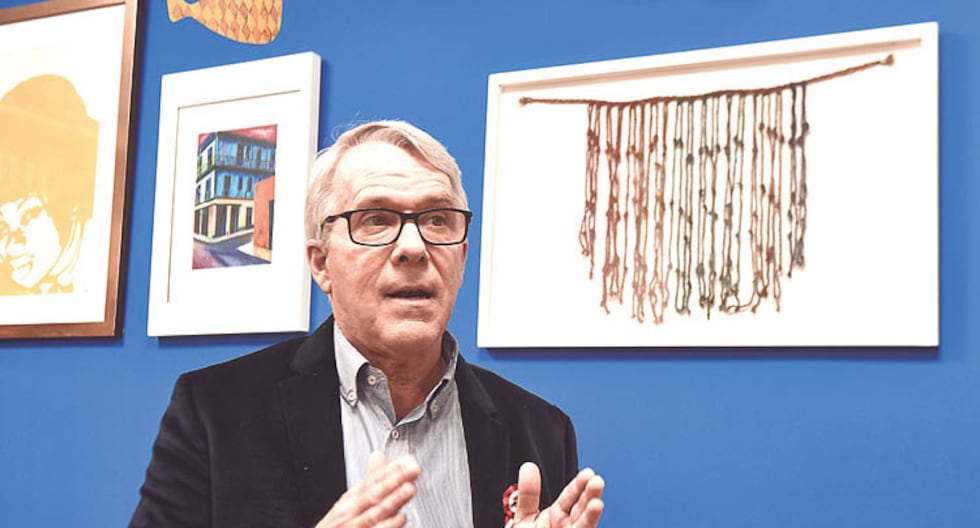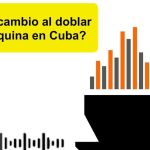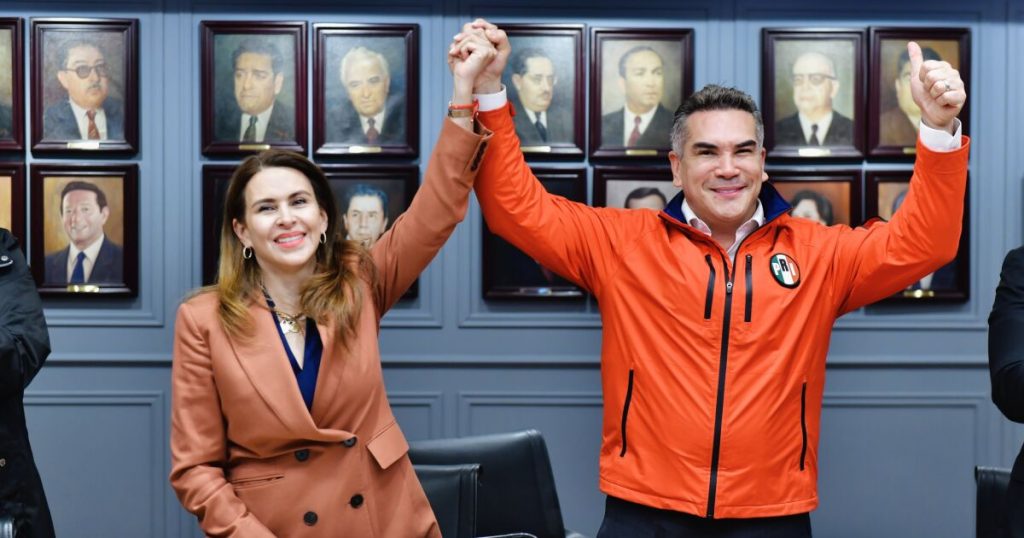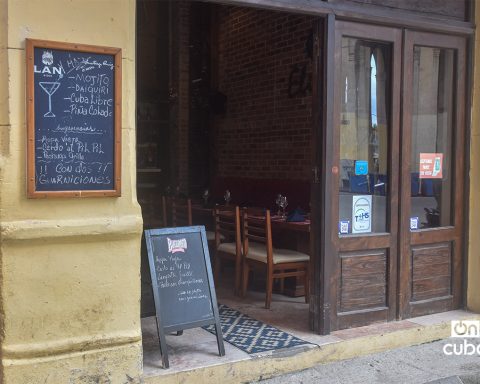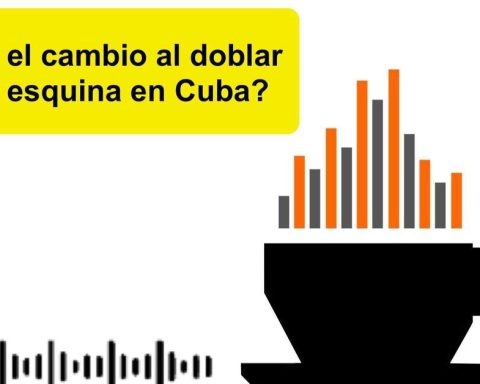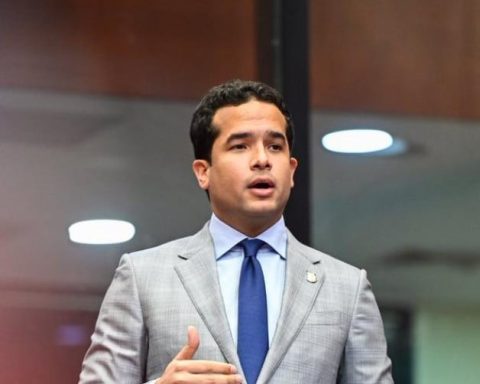What is the first conclusion?
A great dispersion creates a great deal of confusion. Many undecided voters, many blank votes. No candidate stands out above the others. Very few will make it over the threshold.
The campaign starts on April 12, 2025.
Of course, there is still time. We have had to include in the list parties that are in the process of registration. And we are assuming some names that are pre-candidates. The results presented today have to do in part with the recall of names and party brands. There are some parties that have been around for many years and are brands with some good recall. That makes them come out a little better. In the case of individuals, the same thing happens. Those who have been candidates before have a certain advantage over those who are just starting out.
Popular Action and We Are Peru are those brands.
Yes. But the big surprise here is that ANTAURO Fuerza Popular is ahead, but it is the main party in Congress and Keiko Fujimori has been in politics for many years. So, they come out in first place, both in the party survey and in the survey of individuals. But the only new party and candidate in the first places is Antauro Humala, who is second. That is an important development. With the enormous dispersion that exists, if the elections were tomorrow, those who would go to the second round would be Keiko Fujimori and Antauro Humala.
No disqualified candidates have been included.
That is very important. Just the days we were doing the survey, Keiko Fujimori announced Alberto Fujimori’s candidacy. That is a legal impossibility. He has been pardoned but not amnestied. Our position is that he cannot be included in a survey. Nor would it make sense to include Martín Vizcarra, who was disqualified by Congress, or Pedro Castillo, who, having been elected in the last elections, is disqualified from running in the next one. None of those three names can be on the list of options we propose.
What have they asked in private?
Privately, we have found out, for example, that the support that Alberto Fujimori has is very similar to that of Keiko Fujimori. So, it is not as if the fact that Alberto is the candidate would change things much. It is the same Fujimorism in terms of electoral support.
The breakdown of parties with less than 2% is not published because it is within the margin of error.
That’s the problem with having too many candidates. We’re assuming there will be more than 30. It could be up to 50. That leads to many having 1% or 0.5%, and that’s a huge dispersion. It doesn’t make sense to talk about an order there.
There is a polarization…
It seems that the left is still stronger in the Andean world. Antauro Humala is having that position in the interior. Keiko Fujimori, on the other hand, is stronger in Lima. And with her, other candidates who were also strong in Lima in the previous elections, such as López Aliaga or De Soto. They would have more support in Lima than in the interior. Or Acuña in the north. Having been candidates, people mention them because it is easy to remember them. But the truth is that many of them are suffering wear and tear. López Aliaga is mayor and Acuña is governor. The wear and tear of their administrations will cost them in terms of support, beyond the wear and tear in this discredited Congress. These two candidates have this weakness. Hernando de Soto has somewhat dodged that risk because he does not hold any office. But he is in a party that very few remember. In addition, he has the problem of age.
“PEOPLE WANT A BIG CHANGE”
The most mentioned parties do not always coincide with the most mentioned candidates.
This is the case of Acción Popular and Somos Perú, which lack a popular candidate. Both are also suffering from the erosion of Congress. The parties in Congress could suffer a punishment because the electorate is looking for a change.
49% want someone new.
The demand for change is enormous. The feeling that the government, Congress and the political class are a caste, as Milei would say, is widespread. People are waiting for someone new to emerge. A few have identified Antauro for that role. But of the others, none stands out. Experience is seen more as a record than a resume. A large majority would like someone who has not been a candidate and has no political experience. It is the typical profile of the outsider.
Outsiders of politics and now outsiders of the law.
It’s absurd. In other democracies, a person would not have been imprisoned for murdering five police officers. His personality and the fact that he was a military man have led some to see him as the Peruvian Bukele.
69% would not vote for someone over 80 years old.
That plays against Hernando de Soto, as well as Alberto Fujimori. More than knowing who they are going to vote for, people are clear about who they are not going to vote for. The vast majority would not want to vote for someone convicted, like Antauro Humala. And the vast majority would not want to vote for someone under investigation, like Keiko Fujimori. These are realities, in principle. But it ends up being relevant for the second round. For the first round, 10% or 15% of the votes are enough, which any of those cases would have.
What could change this scenario?
The great dispersion could change a lot if electoral alliances were facilitated. Today it is difficult, because, for each party that joins, the barrier is raised by 1%. Fuerza Popular is not interested in the law being approved, but the others should be. Because the second round is an anti-vote. And there the extreme candidates are at a disadvantage compared to the moderate ones. The strange thing is that Fuerza Popular has managed to keep the issue from being touched.
We see parties without candidates and candidates without known parties. There could be alliances there.
And there are also limitations. Funds from companies can no longer be received. But illegals will continue to finance whoever they want.
There are a million votes abroad.
Since Castillo was elected until now, more than a million Peruvians have left. Added to the 3 million who left before. And perhaps the million who will leave between now and the elections. We could talk about 4 and a bit or maybe 5 million. Some do not update their ID. My proposal is to allow electronic voting for voting abroad. Some distrust this system. But it would only be for foreigners. That would greatly increase participation abroad. More than half of those who emigrate have a university or postgraduate education.
